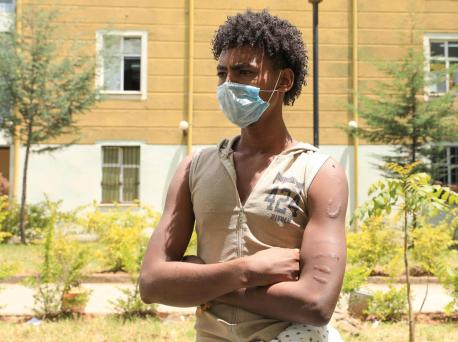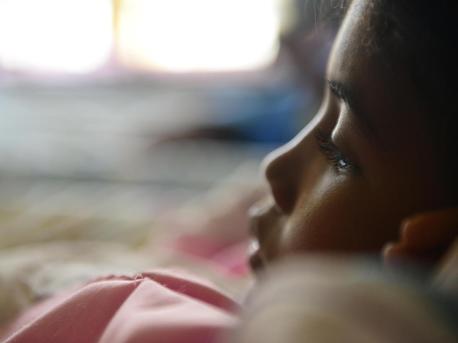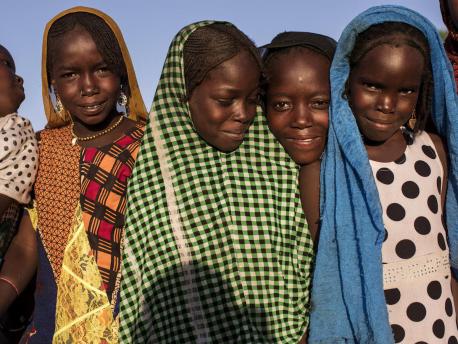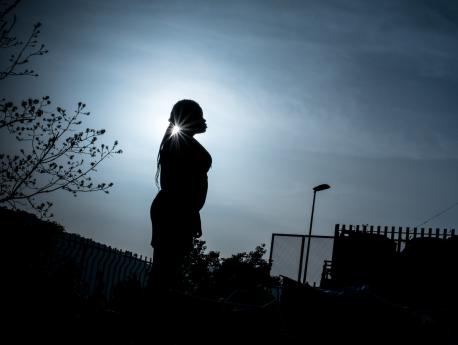
Fleeing Boko Haram, and Tricked into Sexual Exploitation
Almost one-third of all detected trafficking victims are children. The vast majority are girls. Here is one girl's story.
Human trafficking steals lives. Around the world, an estimated 40 million people — one-fourth of them children — are caught up in the multi-billion-dollar industry sometimes referred to as 'modern day slavery.'
Wherever there is conflict, poverty and hunger, there are vulnerable people ripe for exploitation. With more countries embroiled in internal and international fighting now than at any time in the past 30 years, child soldiers, forced labor, child marriage and commercial sexual exploitation are all on the rise.
The vast majority of detected trafficking victims are girls and women
Traffickers operate in the shadows, so exact numbers are difficult to obtain, but the vast majority of detected trafficking victims worldwide are girls and women, according to a United Nations Office on Drugs and Crime study drawing on information from 142 countries. Of these identified cases, almost three-quarters of all trafficked women and girls are recruited for sexual exploitation.
In West Africa's Lake Chad region, Nigeria's Boko Haram insurgency has taken a drastic toll on the lives of millions of families. Children have been abducted, killed, even used as suicide bombers. Electricity, clean water, health care and schools are in short supply. Drought has threatened food supply, leaving an estimated 2 million children suffering from severe acute malnutrition, which can be fatal if untreated.
Thousands leave home every day in search of safety. Migrants put their lives in the hands of smugglers to reach the shores of Italy. Many become trapped in Libyan detention centers, where they are beaten, abused and indefinitely detained. Vulnerable young women and girls are lured by human traffickers with promises of paying jobs in Europe, then forced into prostitution.
Mary* was 17 when she left her home in Benin City, Nigeria for what she hoped would be a better life in Italy. This is her story:
"There is no hope in Nigeria," says Mary* sadly, in an interview with a UNICEF representative at the safe house where she now lives, on the outskirts of Taormina in Sicily. "My country is sweet and I love it, but I suffered a lot there and there was no future for me. My father is dead to me; I have no siblings. I don't have anyone to help me. I couldn't go to school. A woman said she would help me and send me to Europe and she introduced me to a man, Ben, who said he knew people who had restaurants to put me to work in. For the moment, he said he would pay my expenses.
They took us to a place they do juju. We had to swear to an old woman — a sorcerer — that we wouldn't run.
"The next day, Ben called me to his house. There were lots of boys and girls there. He took us to a place they do juju. We had to swear to an old woman — a sorcerer — that we wouldn't run. On March 17, I left for Libya. That place is very, very bad. They said we would be treated well, but it was a lie. A lot of the girls were raped. Ben took two of us girls one night. He gave the other girl to another man, and he said to me if I didn't sleep with him, he would give me to another man and not bring me to Europe. He raped me.
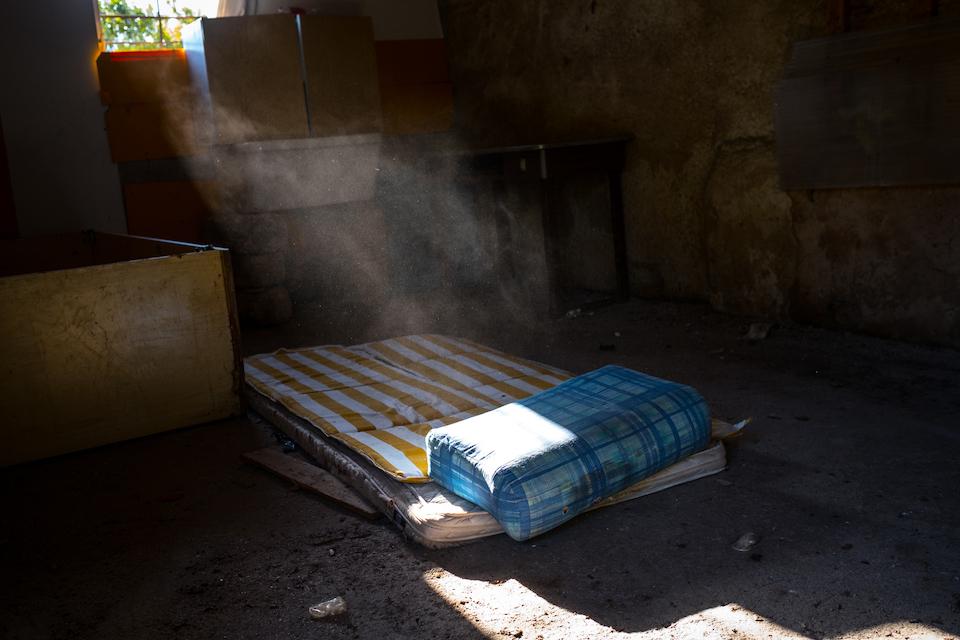
"I didn't have a phone, so I couldn't reach anyone in Nigeria. There was no way out. I was begging for them to feed us. I had to stay there for months until they called me to go on the boat. We went to sea and on August 11, 2016, we were rescued by the Italian coast guard. I was friends with a girl who had been deported and was making the journey for the second time, and she told me we were going to be used as prostitutes, and that I should not talk to the madams and that I had to stay inside the camp the Italians would put us in.
"I was thinking, 'I'm not going to work with my body, I don't want to sell it.' Since I was a little girl, I hated prostitution. When we arrived on shore, a woman, Gilda, who was a lawyer talked to me. I told her I owed a man named Ben money, and I was taken from the camp and put into a safe house.
Two weeks ago, they came to my mother's place and handcuffed her. They took her to a house and threatened her. They said they would do something very bad to her if I don't send money.
"Now the people who paid for my trip are saying to my mother it's time for money," Mary says softly. "They say I have run away, and that they paid for my trip and I owe them."
"Two weeks ago, they came to my mother's place and handcuffed her. They took her to a house and threatened her. They said they would do something very bad to her if I don't send money," Mary says, her voice breaking. "So now when she calls me I don't know what to say, so I have to shut my phone off. I'm so sad. I'm under so much pressure. I don't know what to do.
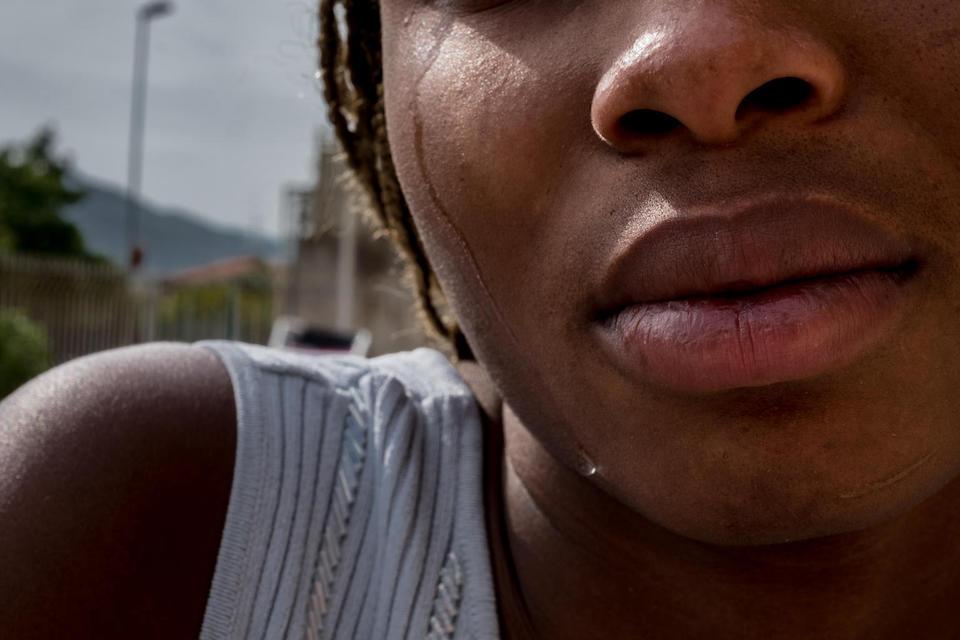
"I'm waiting for my documents, and then I can work, and everyone says I have to be patient. I don't know when I will go to the [asylum] commission to do my interview. I don't know anything. I feel like I'm going to be in one place forever.
"I can't go stand on the side of the road in the name of money," she says, her voice rising. "I have a future. Standing there, selling myself, would destroy my life. My dignity. Everything. What would I tell my children? How could I look in the eyes of a good man? Who would marry a prostitute?
I'm so very lonely. I just want to be happy, I just want to be free. I want it to be over, even for just one day.
"I have been inside here for so long," she says, crying. "I'm so very lonely. I just want to be happy, I just want to be free. I want it to be over, even for just one day. I need a peaceful place, and to feel the beautiful world. Sometimes I feel like giving up. I feel abandoned and rejected. I can't talk to the girls here. I can't tell them what's inside of me, and it makes me feel so old.
"One day I will have my documents, I will have an education, I will have work. My dream is to become a lawyer, to be able to help people. I want to give justice to the girls that have to use their bodies for work."
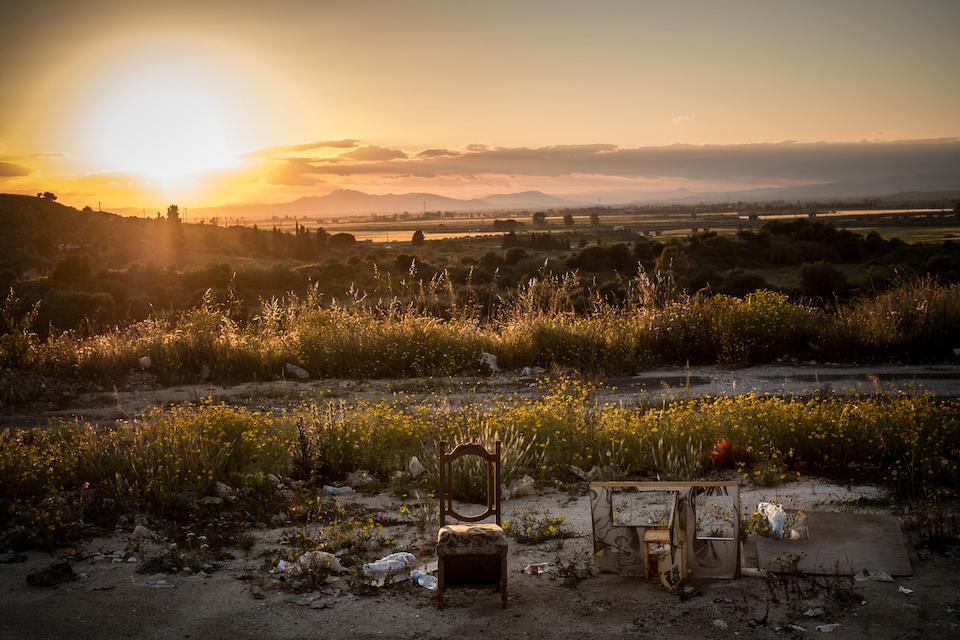
Desperate families and individuals caught in conflict and extreme poverty often have little choice but to risk exploitation in an effort to survive. On the move and unaccompanied, uprooted women and children are at increased risk of exploitation, trafficking and abuse.
UNICEF works with governments and other partners to address these root causes and provide assistance and services vulnerable children need to ensure their rights are protected.
Help UNICEF protect children's rights and help the most vulnerable survive and thrive. Donate today.
* Mary's name has been changed to protect her privacy.
HOW TO HELP
There are many ways to make a difference
War, famine, poverty, natural disasters — threats to the world's children keep coming. But UNICEF won't stop working to keep children healthy and safe.
UNICEF works in over 190 countries and territories — more places than any other children's organization. UNICEF has the world's largest humanitarian warehouse and, when disaster strikes, can get supplies almost anywhere within 72 hours. Constantly innovating, always advocating for a better world for children, UNICEF works to ensure that every child can grow up healthy, educated, protected and respected.
Would you like to help give all children the opportunity to reach their full potential? There are many ways to get involved.



